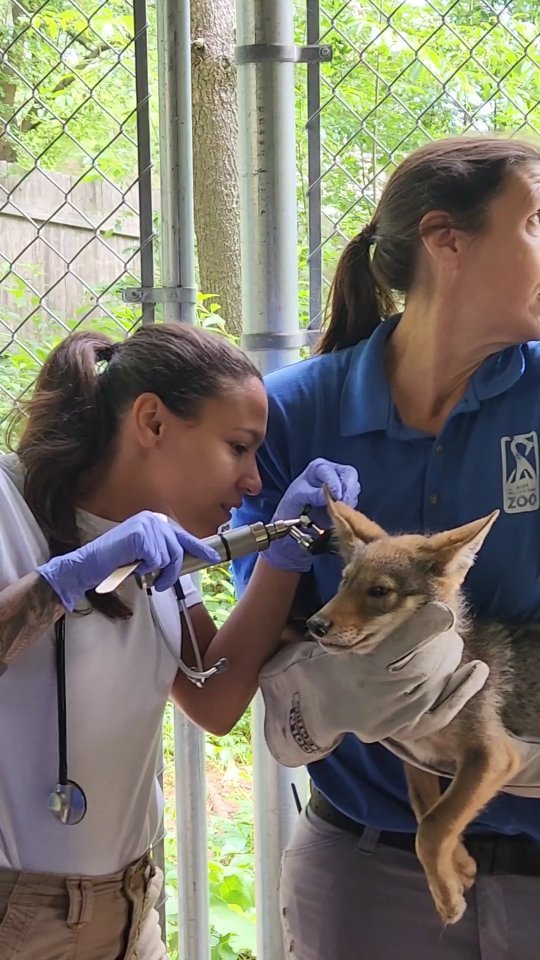Summary:
– The RWPZoo is proud to participate in the red wolf recovery program.
– Red wolves are the most endangered canids in the world.
– The two red wolf pups received their first vet check and are healthy.
– The pups were given vaccinations and a complete physical exam.
– Red wolves are crucial for maintaining biodiversity and ecosystems.
Here at the RWPZoo, we have some exciting news to share with you about our red wolf pups! They received their first vet check recently, and we’re thrilled to report that they are both healthy and thriving. It’s always a relief when our little ones receive a clean bill of health.
As a proud participant in the red wolf recovery program, we understand the importance of these incredible animals. Red wolves are not only fascinating creatures but also the most endangered canids in the world. Can you believe that? With such a small population left, every pup born is truly a cause for celebration.
During their first vet check, the pups were weighed, received a complete physical exam, and even got their first round of vaccinations. It’s just like taking your furry friend to the vet! These little ones are growing so quickly. At nearly 2 months old, they are already bounding around with excitement and curiosity.
But why is the red wolf so important? Well, let us tell you. Red wolves play a vital role in maintaining biodiversity and healthy ecosystems. They are apex predators, meaning that they are at the top of the food chain. By controlling populations of prey species, they help to maintain balance in the ecosystem. This, in turn, ensures that other species can flourish and thrive.
Unfortunately, the red wolf has faced numerous challenges, including habitat loss, hunting, and interbreeding with coyotes. As a result, only one known population of red wolves is left in the wild. Can you imagine? It’s a stark reminder of the urgent need to protect and conserve these incredible creatures.
That’s where conservation programs like ours come in. By participating in the red wolf recovery program, we are actively working to ensure the survival and future of this species. Through breeding initiatives, habitat protection, and public education, we strive to make a difference and give these pups the best chance at a thriving population.
Speaking of these adorable pups, did you know that red wolves can have litters of anywhere from 2 to 8 pups? It’s amazing to think about how these tiny bundles of fur will one day become powerful and important members of their ecosystem. They truly are a symbol of resilience and hope.
So, swing by next time you visit the zoo and see our red wolf pups. Witnessing their playful antics and learning about their significance in the natural world is an experience like no other. You might find yourself falling in love with these misunderstood creatures and feeling inspired to take action to protect them.
Remember, every little step counts. Whether it’s supporting conservation programs, spreading awareness, or making sustainable choices in your daily life, we can all play a role in safeguarding our planet’s precious wildlife. Together, we can create a brighter future for these incredible animals and ensure that generations to come will be able to marvel at the majesty of the red wolf.
In conclusion, the first vet check for our red wolf pups succeeded. They are healthy and growing at an impressive rate. As we continue our efforts in the red wolf recovery program, we invite you to join us in celebrating these remarkable creatures and working towards a better, more sustainable future. Together, we can make a difference.
*****
Source Description
UPDATE: Our red wolf pups received their first vet check – a girl and a boy! We’re pleased to say both growing pups received a clean bill of health.
The pups were each given their first round of vaccinations (just like your pup at home would get), weighed and received a complete physical exam. At nearly 2 months old, these pups are growing by leaps and bounds!
Your RWPZoo is proud to be a part of the red wolf recovery program. As the red wolf is the most endangered canid in the world, there’s only one known population of <30 animals found in eastern North Carolina—these pups are vital to the survival of their species.


